Words Amicia de Moubray Photographs Amicia de Moubray
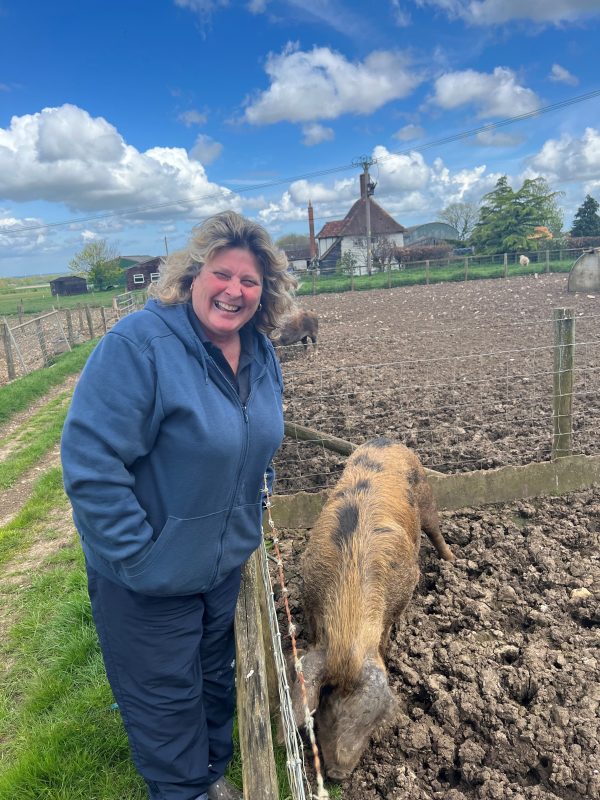
Julie Murray and one of her many pigs
‘Hello darling,’ says Julie Murray of Snoad Farm to one of the many handsome Oxford Sandy and Black pigs merrily sauntering around her farm. In the last few years Snoad has become synonymous with flavoursome pork. ‘I haven’t had pork like this since I was a child,’ is the typical response of anyone lucky enough to eat Julie’s pork.
Part of the Otterden estate, a few miles from Faversham, the farm has outstanding views stretching as far as the wind turbines in Herne Bay. The ancient farmhouse dates from the 16th century and has several old wall paintings of Coats of Arms for the Royal Stuarts. Some experts believe that these may indicate that the property was once a Royalist ‘safe house’ in the Civil War. Julie, originally from Faversham, and her husband David took over the 200 acre farm from his parents when they retired in 1996. They had been at Snoad since 1954. At that time, ‘We were all sheep – mules and Romneys.’ But the outbreak of foot and mouth stopped the Murrays transporting their sheep to market, forcing them to diversify.
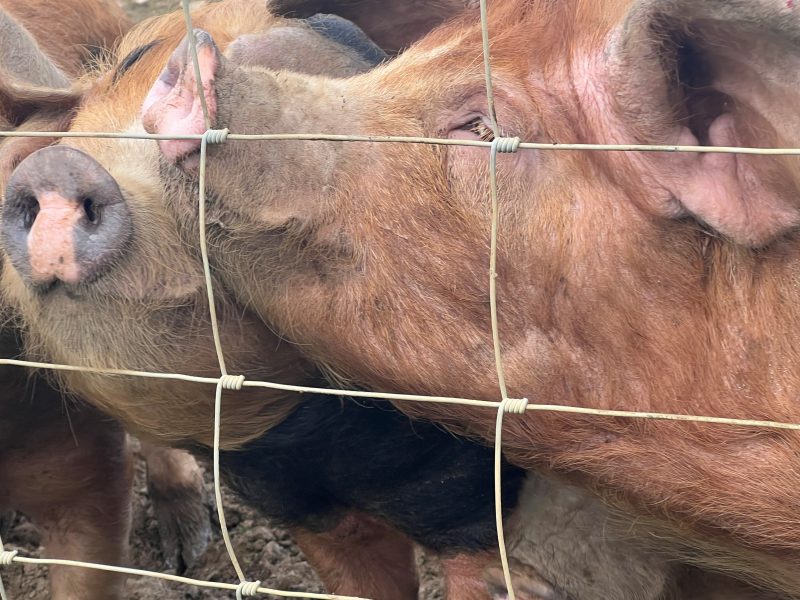
Winsome pigs
It all began when one day they were asked for pork. ‘I didn’t want pink pigs. They get sunburnt,’ she chuckles, adding: ‘I wanted a native breed with a bit more taste, that were easy to manage and get on with.’
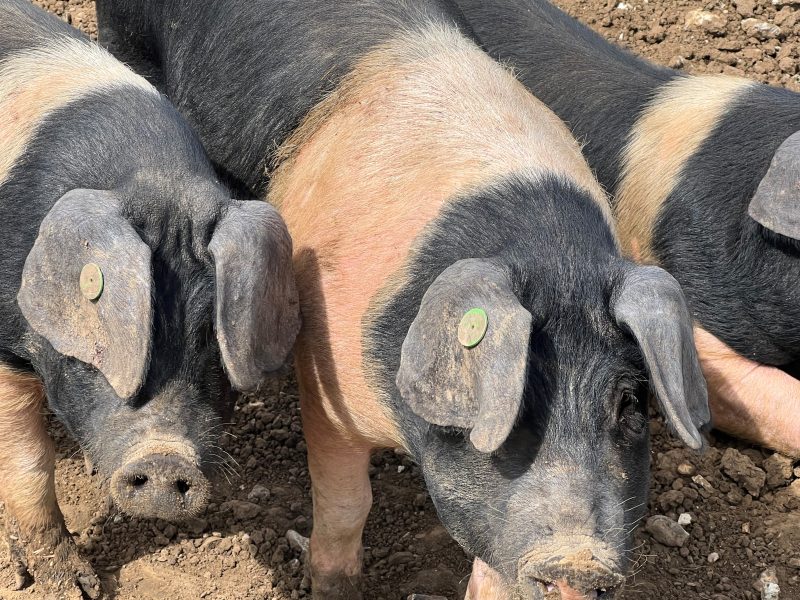
More winsome pigs
Eventually she plumped for Oxford Sandy and Blacks, one of the oldest rare breeds, beginning with a few weaners from a breeder in Dorset. At that time there were just 250 in the country. Now there are more than 600, reflecting the fact that people are beginning to be more aware of good quality pork.
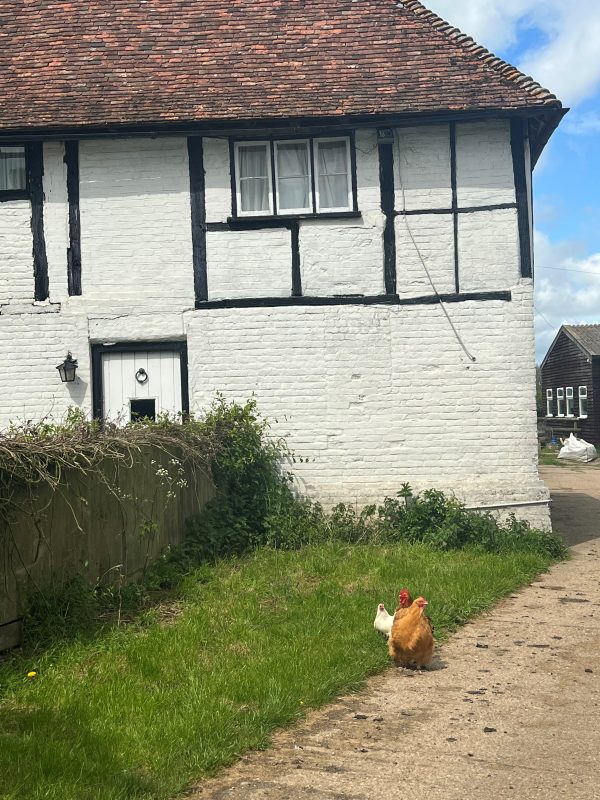
A detail of the ancient farmhouse
Otterden can be extremely cold in the winter. The open ground is often ravaged by bitterly cold winds, not to mention the horrendous mud. Oxford Sandy and Blacks can cope with hot or cold weather which is a prerequisite for pigs living at Snoad. ‘You must be bloody cold up there,’ said the chap from the abattoir based in Adisham. ‘You have the hairiest pigs we encounter.’
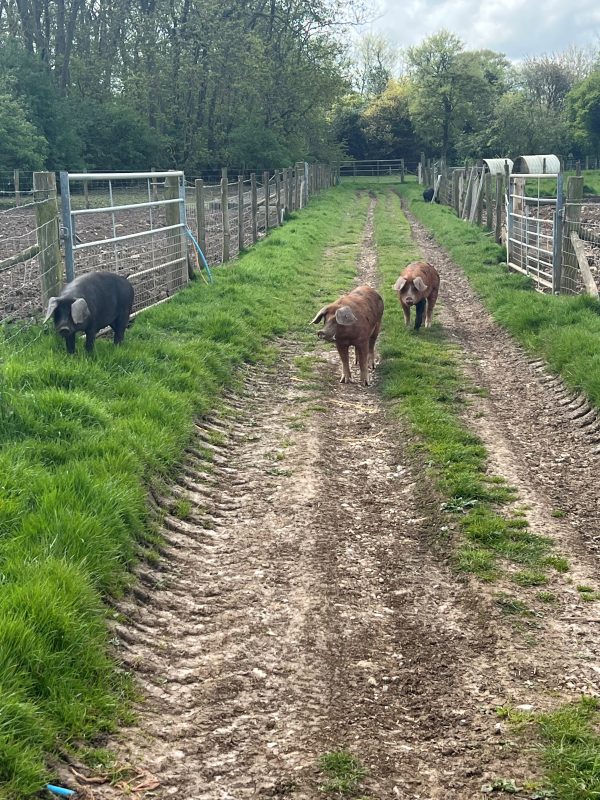
Escapologist pigs
We meet several boy pigs on the loose as we wander around the farm. They have escaped from their pens. ‘The boys are very cheeky as well as intelligent.’ Some of them resemble the pig equivalent of Belted Galloway cattle, dark with a white band. These are the result of crossing a Saddleback sow with an Oxford. Julie breeds on average a litter of pigs a month. Pregnant sows have a gestation time of three months, three weeks and three days.

Snoad Farms dates in part from the 16th century
Julie supplies the Goods Shed, the Pearsons Arms in Whitstable, and the butchers at Macknades which in turn supplies The Sportsman in Seasalter, and an artisan butcher, the Black Pig Butchers in Deal, which only sells meat from native rare breeds, and won the prestigious BBC Radio 4 Food Programme’s Food and Farming ‘Food Producer Award’ in 2022.
It is not an easy time for any pig farmer – recently the price of feed nearly doubled in a week due to the war in the Ukraine and this has had a knock-on effect. The family run two other businesses: David lays electric cables all over the South East from Norfolk to Surrey and Julie does the accounts for her one of her daughters who runs the Woodstock House Day Nursery near Sittingbourne. ‘We couldn’t survive on just the farm income.’
Next time you fancy a pork dinner with crispy crackling buy yourself a treat at Macknade’s butcher. The pork is sublime.
Text: Amicia de Moubray. Photographs: Amicia de Moubray